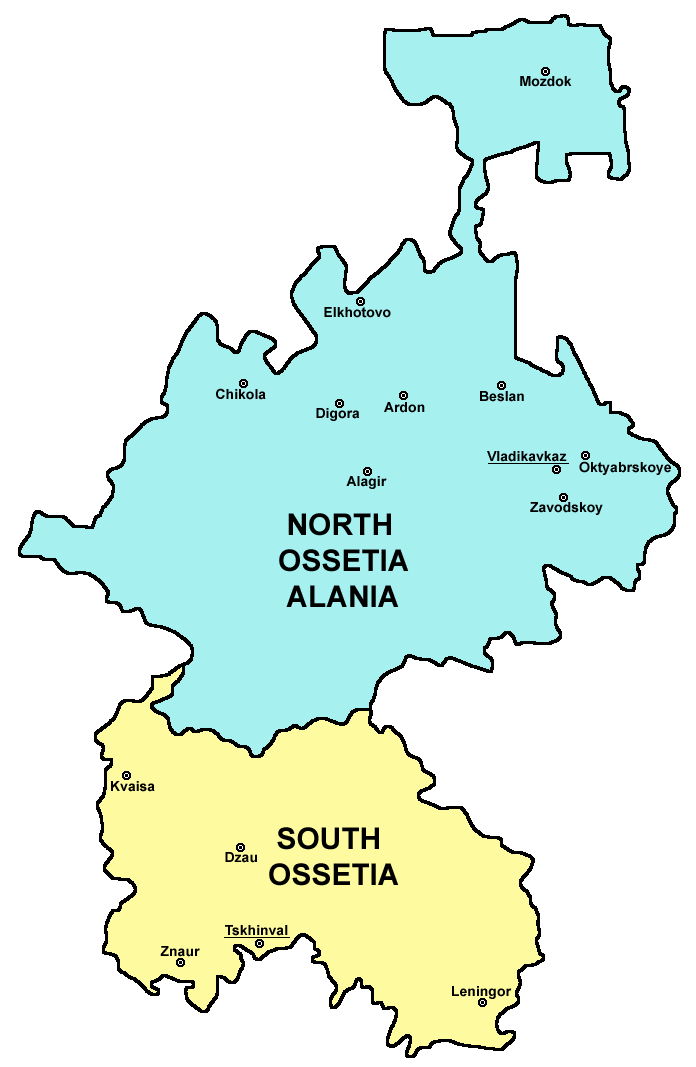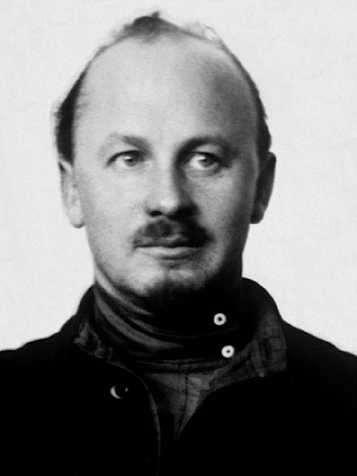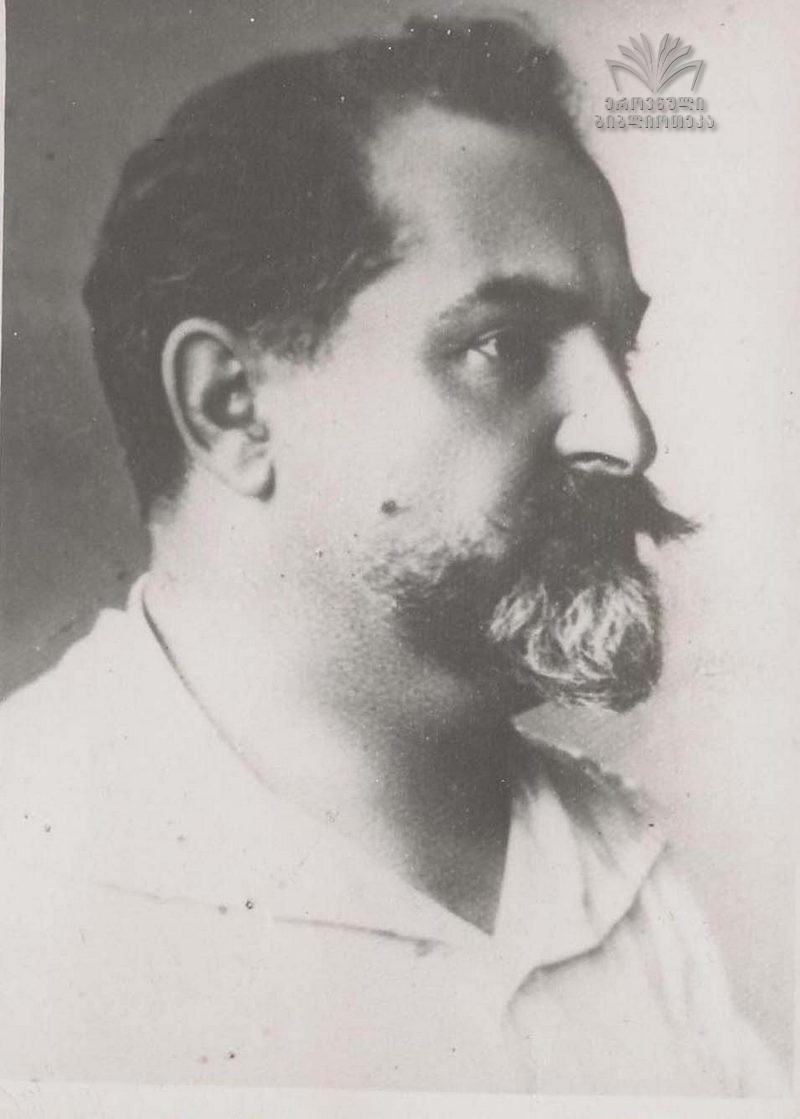|
12th Congress Of The Russian Communist Party (Bolsheviks)
The 12th Congress of the Russian Communist Party (Bolsheviks) was held during 17ŌĆō25 April 1923 in Moscow. The congress elected the 12th Central Committee. It was attended by 408 delegates with deciding votes and 417 with consultative votes, representing 386,000 party members. This was the last congress of the Russian Communist Party (Bolsheviks) (RCP(b) during Vladimir Lenin's leadership, though Lenin was unable to attend due to illness.Twelfth Congress of the Russian Communist Party (Bolshevik) , 3rd Edition (1970-1979) Agenda |
Moscow
Moscow ( , US chiefly ; rus, links=no, ą£ąŠčüą║ą▓ą░, r=Moskva, p=m╔Ésk╦łva, a=ą£ąŠčüą║ą▓ą░.ogg) is the capital and largest city of Russia. The city stands on the Moskva River in Central Russia, with a population estimated at 13.0 million residents within the city limits, over 17 million residents in the urban area, and over 21.5 million residents in the metropolitan area. The city covers an area of , while the urban area covers , and the metropolitan area covers over . Moscow is among the world's largest cities; being the most populous city entirely in Europe, the largest urban and metropolitan area in Europe, and the largest city by land area on the European continent. First documented in 1147, Moscow grew to become a prosperous and powerful city that served as the capital of the Grand Duchy that bears its name. When the Grand Duchy of Moscow evolved into the Tsardom of Russia, Moscow remained the political and economic center for most of the Tsardom's history. When th ... [...More Info...] [...Related Items...] OR: [Wikipedia] [Google] [Baidu] |
Bolshevism
Bolshevism (from Bolshevik) is a revolutionary socialist current of Soviet MarxistŌĆōLeninist political thought and political regime associated with the formation of a rigidly centralized, cohesive and disciplined party of social revolution, focused on overthrowing the existing capitalist state system, seizing power and establishing the "dictatorship of the proletariat".Alexander TarasovThe Sacred Function of the Revolutionary Subject/ref> Bolshevism originated at the beginning of the 20th century in Russia and was associated with the activities of the Bolshevik faction within the Russian Social Democratic Labour Party ŌĆō and first of all, the founder of the faction, Vladimir Lenin. Remaining on the soil of Marxism, Bolshevism at the same time absorbed elements of the ideology and practice of the revolutionaries of the second half of the 19th century ( Sergey Nechaev, Pyotr Tkachev, Nikolay Chernyshevsky) and had many points of contact with such domestic leftŌĆōwing radical mo ... [...More Info...] [...Related Items...] OR: [Wikipedia] [Google] [Baidu] |
Mirs├żyet Soltan─¤├żliev
Mirsaid Sultan-Galiev ( tt-Cyrl, ą£ąĖčĆčüėÖąĄčé ąźėÖą╣ą┤ėÖčĆą│ą░ą╗ąĖ čāą╗čŗ ąĪąŠą╗čéą░ąĮą│ą░ą╗ąĖąĄą▓, ''Mirs├żyet X├żyd├żr─¤├żli ul─▒ Soltan─¤├żliev'', pronounced ; russian: ą£ąĖčĆčüą░ąĖą┤ ąźą░ą╣ą┤ą░čĆą│ą░ą╗ąĖąĄą▓ąĖčć ąĪčāą╗čéą░ąĮ-ąōą░ą╗ąĖąĄą▓ ''Mirsaid Khaydargalievich Sultan-Galiev''; 13 July 1892 ŌĆō 28 January 1940), also known as Mirza Sultan-Galiev, was a Tatar Bolshevik revolutionary who rose to prominence in the Russian Communist Party in the early 1920s. He was the architect of Muslim "national communism". His views were a direct threat to the policies of the Comintern; he was imprisoned briefly in 1923 and expelled from the Communist Party. He was rearrested in 1928 and imprisoned for six years. He was then arrested again in 1937 and executed in 1940 during the Stalin period. Early life and family Sultan-Galiev, the son of a teacher, was born on July 13, 1892 in the village of Elembet'evo, Ufa Guberniya, Bashkiria, then part of the Russian Empire. He had a difficult ... [...More Info...] [...Related Items...] OR: [Wikipedia] [Google] [Baidu] |
Communist Party Of Georgia (Soviet Union)
The Communist Party of Georgia ( ka, ßāĪßāÉßāźßāÉßāĀßāŚßāĢßāößāÜßāØßāĪ ßāÖßāØßāøßāŻßā£ßāśßāĪßāóßāŻßāĀßāś ßā×ßāÉßāĀßāóßāśßāÉ; russian: ąÜąŠą╝ą╝čāąĮąĖčüčéąĖč湥čüą║ą░čÅ ą┐ą░čĆčéąĖčÅ ąōčĆčāąĘąĖąĖ) was the founding and ruling political party of the Georgian Soviet Socialist Republic. Georgia was incorporated into the Soviet Union as the Georgian Soviet Socialist Republic after 25 February 1921 when the Red Army entered its capital Tbilisi and installed a communist government led by Georgian Bolshevik Filipp Makharadze. In 1922 the Georgian SSR was incorporated into the Transcaucasian Socialist Federative Soviet Republic which lasted until 1936. During its period as a Soviet Socialist Republic it was ruled by the First Secretary of the Georgian Communist Party including; Samson Mamulia, Lavrentiy Beria, Candide Charkviani, Vasil Mzhavanadze and Eduard Shevardnadze. On August 26, 1991, by the decision of the Georgian parliament, the Communist Party was banned. Its political descendant ... [...More Info...] [...Related Items...] OR: [Wikipedia] [Google] [Baidu] |
Menshevik
The Mensheviks (russian: ą╝ąĄąĮčīčłąĄą▓ąĖą║ąĖ╠ü, from ą╝ąĄąĮčīčłąĖąĮčüčéą▓ąŠ 'minority') were one of the three dominant factions in the Russian socialist movement, the others being the Bolsheviks and Socialist Revolutionaries. The factions emerged in 1903 following a dispute within the Russian Social Democratic Labour Party (RSDLP) between Julius Martov and Vladimir Lenin. The dispute originated at the 2nd Congress of the RSDLP, ostensibly over minor issues of party organization. Martov's supporters, who were in the minority in a crucial vote on the question of party membership, came to be called ''Mensheviks'', derived from the Russian ('minority'), while Lenin's adherents were known as ''Bolsheviks'', from ('majority'). Despite the naming, neither side held a consistent majority over the course of the entire 2nd Congress, and indeed the numerical advantage fluctuated between both sides throughout the rest of the RSDLP's existence until the Russian Revolution. The split ... [...More Info...] [...Related Items...] OR: [Wikipedia] [Google] [Baidu] |
Abkhazia
Abkhazia, ka, ßāÉßāżßā«ßāÉßā¢ßāößāŚßāś, tr, , xmf, ßāÉßāæßā¤ßāŻßāÉ, abzhua, or ( or ), officially the Republic of Abkhazia, is a partially recognised state in the South Caucasus, recognised by most countries as part of Georgia, which views the region as an autonomous republic.Olga Oliker, Thomas S. Szayna. Faultlines of Conflict in Central Asia and the South Caucasus: Implications for the U.S. Army. Rand Corporation, 2003, .Emmanuel Karagiannis. Energy and Security in the Caucasus. Routledge, 2002. .''The Guardian''Georgia up in arms over Olympic cash/ref> It lies on the eastern coast of the Black Sea, south of the Greater Caucasus mountains in northwestern Georgia. It covers and has a population of around 245,000. Its capital and largest city is Sukhumi. The status of Abkhazia is a central issue of the GeorgianŌĆōAbkhazian conflict and GeorgiaŌĆōRussia relations. The polity is recognised as a state by Russia, Venezuela, Nicaragua, Nauru, and Syria. While Georgia la ... [...More Info...] [...Related Items...] OR: [Wikipedia] [Google] [Baidu] |
Ossetia
Ossetia ( , ; os, ąśčĆčŗčüč鹊ąĮ or , or ; russian: ą×čüąĄčéąĖčÅ, Osetiya; ka, ßāØßāĪßāößāŚßāś, translit. ''Oseti'') is an ethnolinguistic region located on both sides of the Greater Caucasus Mountains, largely inhabited by the Ossetians. The Ossetian language is part of the Eastern Iranian branch of the family of Indo-European languages. Most countries recognize the Ossetian-speaking area south of the main Caucasus ridge as lying within the borders of Georgia, but it has come under the control of the ''de facto'' government of the Russian-backed Republic of South Ossetia ŌĆō the State of Alania. The northern portion of the region consists of the Republic of North Ossetia-Alania within the Russian Federation. Recent history * 1774 ŌĆö North Ossetia becomes part of the Russian Empire. * 1922 ŌĆö Creation of the South Ossetian autonomous oblast. North Ossetia remains a part of Russian SFSR, South Ossetia remains a part of Georgian SSR. * 20 September 1990 ŌĆö South Osse ... [...More Info...] [...Related Items...] OR: [Wikipedia] [Google] [Baidu] |
Georgian Soviet Socialist Republic
The Georgian Soviet Socialist Republic (Georgian SSR; ka, ßāĪßāÉßāźßāÉßāĀßāŚßāĢßāößāÜßāØßāĪ ßāĪßāÉßāæßāŁßāØßāŚßāÉ ßāĪßāØßā¬ßāśßāÉßāÜßāśßāĪßāóßāŻßāĀßāś ßāĀßāößāĪßā×ßāŻßāæßāÜßāśßāÖßāÉ, tr; russian: ąōčĆčāąĘąĖąĮčüą║ą░čÅ ąĪąŠą▓ąĄčéčüą║ą░čÅ ąĪąŠčåąĖą░ą╗ąĖčüčéąĖč湥čüą║ą░čÅ ąĀąĄčüą┐čāą▒ą╗ąĖą║ą░, Gruzinskaya Sovetskaya Sotsialisticheskaya Respublika) was one of the republics of the Soviet Union from its second occupation (by Russia) in 1921 to its independence in 1991. Coterminous with the present-day republic of Georgia, it was based on the traditional territory of Georgia, which had existed as a series of independent states in the Caucasus prior to the first occupation of annexation in the course of the 19th century. The Georgian SSR was formed in 1921 and subsequently incorporated in the Soviet Union in 1922. Until 1936 it was a part of the Transcaucasian Socialist Federative Soviet Republic, which existed as a union republic within the USSR. From November 18, 1989, the Georgian ... [...More Info...] [...Related Items...] OR: [Wikipedia] [Google] [Baidu] |
11th Central Committee Of The Russian Communist Party (Bolsheviks)
The Central Committee (CC) composition was elected by the 11th Congress, and sat from 2 April 1922 until 25 April 1923 . The CC 1st Plenary Session renewed the composition of the Politburo, Secretariat and the Organizational Bureau (OB) of the Russian Communist Party (Bolsheviks). Plenums The CC was not a permanent institution. It convened nine plenary sessions between the 11th Congress and the 12th Congress. When the CC was not in session, decision-making powers were transferred to inner bodies of the CC itself; the Politburo, Secretariat and Orgburo The Orgburo (russian: ą×čĆą│ą▒čÄčĆąŠ╠ü), also known as the Organisational Bureau (russian: ąŠčĆą│ą░ąĮąĖąĘą░čåąĖąŠąĮąĮąŠąĄ ą▒čÄčĆąŠ), of the Central Committee of the Communist Party of the Soviet Union existed from 1919 to 1952, when it was abo ... (none of these bodies were permanent either, but convened several times a months). Apparatus Individuals employed by Central Committee's bureaus, departments and newspapers made ... [...More Info...] [...Related Items...] OR: [Wikipedia] [Google] [Baidu] |
Meeting Hall Of The 12th Congress Of The Russian Communist Party (Bolsheviks)
A meeting is when two or more people come together to discuss one or more topics, often in a formal or business setting, but meetings also occur in a variety of other environments. Meetings can be used as form of group decision making. Definition A meeting is a gathering of two or more people that has been convened for the purpose of achieving a common goal through verbal interaction, such as sharing information or reaching agreement. Meetings may occur face-to-face or virtually, as mediated by communications technology, such as a telephone conference call, a skyped conference call or a videoconference. One Merriam-Webster dictionary defines a meeting as "an act or process of coming together" - for example "as ..an assembly for a common purpose ...Meeting ŌĆō Definition and More fr ... [...More Info...] [...Related Items...] OR: [Wikipedia] [Google] [Baidu] |
Filipp Makharadze
Filipp Yeseyevich Makharadze ( ka, ßāżßāśßāÜßāśßā×ßāö ßāøßāÉßā«ßāÉßāĀßāÉßā½ßāö, russian: ążąĖą╗ąĖą┐ą┐ ą£ą░čģą░čĆą░ą┤ąĘąĄ; 9 March 1868 ŌĆō 10 December 1941) was a Georgian Bolshevik revolutionary and government official. Life Born in the village of Shemokmedi (Guria, Georgia), Makharadze studied at the Theological Seminary in Tbilisi and later graduated from the Veterinary Institute of Warsaw (Poland). He joined the Social Democratic movement in 1891 and participated in activities in Georgia and Azerbaijan. In 1903, he joined the Caucasian Joint Committee of the Russian Social Democratic Labour Party and played an active role in the 1905 Revolution in the Caucasus; he was allegedly involved in the assassination of the prominent Georgian public figure Ilia Chavchavadze in 1907. In 1907ŌĆō1915, he led various Bolshevik groups in Transcaucasia and, after the February Revolution, he co-founded the Tbilisi Soviet of Workers' Deputies. In April 1917, he was elected as a delegate t ... [...More Info...] [...Related Items...] OR: [Wikipedia] [Google] [Baidu] |
Budu Mdivani
Polikarp "Budu" Gurgenovich Mdivani ( ka, ßā×ßāØßāÜßāśßāÖßāÉßāĀßā×ßāö āæßāŻßāōßāŻßāøßāōßāśßāĢßāÉßā£ßāś; russian: ą¤ąŠą╗ąĖą║ą░čĆą┐ ąōčāčĆą│ąĄąĮąŠą▓ąĖčć æčāą┤čāą£ą┤ąĖą▓ą░ąĮąĖ, ''Polikarp Gurgenovich uduMdivani''; 1877 ŌĆō 19 July 1937) was a veteran Georgian Bolshevik and Soviet government official energetically involved in the Russian Revolutions and the Civil War. In the 1920s, he played an important role in the Sovietization of the Caucasus, but later led Georgian Communist opposition to Joseph Stalin's centralizing policy during the Georgian Affair of 1922. He was executed during the Great Purge. Early life He was born in to a prominent noble family in the Kutaisi Governorate. Mdivani enrolled in the Imperial Moscow University but was later expelled from the university for his participation in the student riots of 1899. Revolution and Civil War Mdivani joined the Bolshevik faction of the Russian Social Democratic Labour Party in 1903 and engaged in revolutionary activi ... [...More Info...] [...Related Items...] OR: [Wikipedia] [Google] [Baidu] |
.jpeg)
_approved_at_the_8th_Party_Congress_(1919).jpg)





